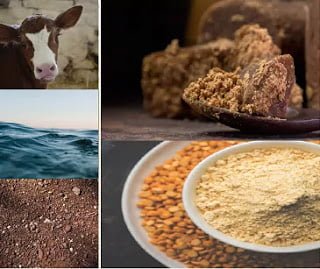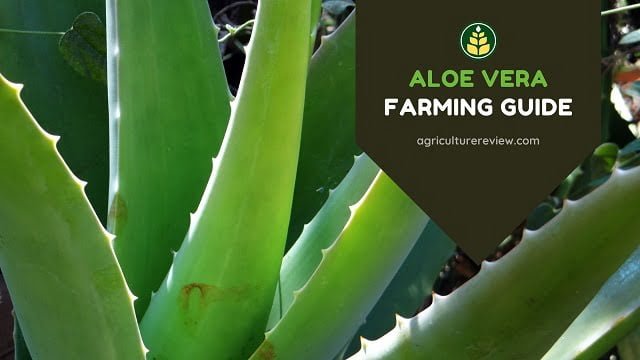This ultimate guide on jeevamrut will help you to prepare jeevamrut for your plants. Also get to know benefits of jeevamrut and uses.
Table of Contents
Introduction
Jeevamrut is the traditional Indian bio pesticide and organic manure that is prepared by the unique technique of fermentation of the combined mixture of cow dung, cow urine, jaggery, pulses flour, soil and water.
Not only it is cost effective but it is beneficial for both plants and soil. Farmers who spends lots of money on fertilizers and pesticides can save their money and use this amazing traditional medicine for plants.
Jeevamrut is 100% organic and have no harmful effects on soil health. It is made up of two words “Jeevan” and “Amrit.” The first word Jeevan means “Life” and the second word Amrit means “Medicinal potion.”
Benefits Of Using Jeevamrut
Jeevamrut is a rich source of Nitrogen, Potassium and Phosphorus. It also contains all other micronutrients responsible for plant growth and development.
It is completely organic and provide all the nutrients required for plant growth and it also prevents plants from pest and diseases. Unlike other organic manure that takes months to be prepared, you can prepare jeevamrut within a week.
It helps to maintain the pH of the soil, improves aeration, increase beneficial bacteria, applicable to all plants and much more.
The raw materials used to make this life giving medical potion is generally available in rural areas and farms. Many farmers have already started using this organic traditional manure and have earned a huge profit.
How To Use Jeevamrut For Plants?

Jeevamrut can be applied in two forms i.e. solid and liquid. Solid form is generally called as “Ghanjeevamrutam.” Components of both the forms i.e. liquid and solid is nearly same. The only difference is in the amount of liquid.
In Liquid Form: You can apply 5 to 10% of Jeevamrut in water in the form of a spray. For one acre of land 200 Litres of Jeevamrut is required. Spray in the interval of every 7 to 14 days for better results.
In solid Form: You can apply ghanjeevamrutam directly in your farm. You can apply in the powder form in your field just like you apply vermicompost or Farm Yard Manure. It can be stored for 8 months.
You will also love reading these,
READ MORE: HOW TO START MAKING VERMICOMPOST
READ MORE: 3G CUTTING MEANING & PROCESS
How To Prepare Jeevamrut?
To prepare this organic manure you will need:
| Ingredients | Quantity |
|---|---|
| Water | 200 Litres |
| Cow Dung | 10 Kilograms |
| Cow Urine | 10 Litres |
| Pulse Flour | 2 Kilograms |
| Jaggery | 2 Kilograms |
| Soil | A handful |
Process
Mix cow urine + cow dung + pulses floor + jaggery ( dissolved in 10 litres water) + A handful of soil in a separate container and mix this mixture very well.
In a non metallic barrel of 200 litres capacity, fill water and pour the prepared mixture of cow dung, cow urine, pulses floor, jaggery and soil in the barrel.
With the help of wooden stick stir the mixture in the barrel clockwise and anticlockwise. Keep repeating this process two times in a day i.e. first stir in the morning and second in the evening for 7 days.
After 7 days the beneficial organic manure will become ready to be used. You can apply this liquid manure in the form of spray on your plants.
You will also love reading them,
READ MORE: ZBNF Meaning & Process
How To Prepare Ghana-jeevamrutam?
This solid form of organic manure can be prepared by two methods. The first method is very easy and requires Liquid Jeevamrut and Farm Yard Manure.
Method 1
Take 100 Kg of Farm Yard Manure and 20 Litres of Jeevamrut. Mix these components thoroughly and dry it under shade and cover it with gunny bag. Once this mixture gets dry completely beat it with your hand to make powder.
Method 2
Take 10 Kg Cow dung, 5 to 10 litres cow urine, 2 Kg Jaggery, 2 Kg pulses powder, handful of soil. Mix all of these components together very well. Dry it under shade and cover it with gunny bag. Once dried make powder of this dried mixture. You can store this organic manure for 6 to 8 months.





How to use prepared jeevamrut for spraying on plants in plants nursery. Can we directly use the prepared solution of 200 lit in spray pump or add water to it.
Dilute jeevamrut in water in 1:10 before spraying. Applying the jeevamrut solution directly can harm your plants.
I hope this will help!
Who tell you that bro you are wrong. You can apply it directly without any fear it will improves flowers fruit and leaves too
Hi,
Kindly correct your information from government portal NCOF, Ghaziabad. pH of Jeevamrut is acidic, that’s why diluting it with water is necessary. However you can apply Ghana-jeevamrutam directly.
I hope this will help!
How much jeevamrut in liters can apply into 200 liter drum with water?
Take 20 litres of Jeevamrut for 200 liters of water.
Very informative and helpful discussion. Thanks a lot.
Welcome!
What is NPK content in 200 litres Zeevamrut
According to lab analysis, Nitrogen is 0.047%, Phosphorus 0.0173%, and Potassium 0.0568%. But as it is bio-fertilizer which means that it converts organic waste into manure. In bio-fertilizers like Jeevamrut NPK content doesn’t matter!
Thank you for this very helpful information.
I have a clarification. Could you share what is the Ratio of dilution? How much of Jeevamrut to how much water? And can you tell the ratio for application to roots ?
Welcome! Use 10% of the total amount of water, you can use 20 liters for 200 liters of water for applying in the farm.
This is impresive
When you say 200 liters of jeevamrut, you mean diluted?
We should dilute before applying.
How much quantity of jeevaamrut and water should be applied for gardening plants..ratio of jeevaamrut and water..please reply
In 1 litre of water add 100 to 200 ml of Jeevamrut for gardening plants.
Hello , have made 10 beds of vegetables and have added old manure in the initial stage of ploughing. Have put seeds in last 2 days .
Have made my Jeevamrut today in a barrel with 200 liters of water , pls can you specify when should I put Jeev Amrut in my vegetable beds &how much and at what intervals pls .
Hi,
For one acre of land, 200 liters of jeevamrut solution should be applied, based on this you can calculate the amount required based on your area. For a smaller area, 20 liters of solution is sufficient. Apply jeevamrut once after every 14 days for best results. Make sure to dilute jeevamrut solution in 1:9 with water before applying.
If you want more assistance, then you can also connect with Agriculture Review on Facebook, Instagram or WhatsApp Messenger.
Sir
Once jeevaamrit prepared, how long can we use it, means shelf life.
The Shelf life of jeevamrut is 10 to 12 days. However, in the prepared liquid, you cann keep adding required materials to use it for a longer duration.
Can I apply jeevamrit in solid form for strawberry growing in pots?
Yes you can apply ghanjeevamrut for fertilizing strawberry plants.